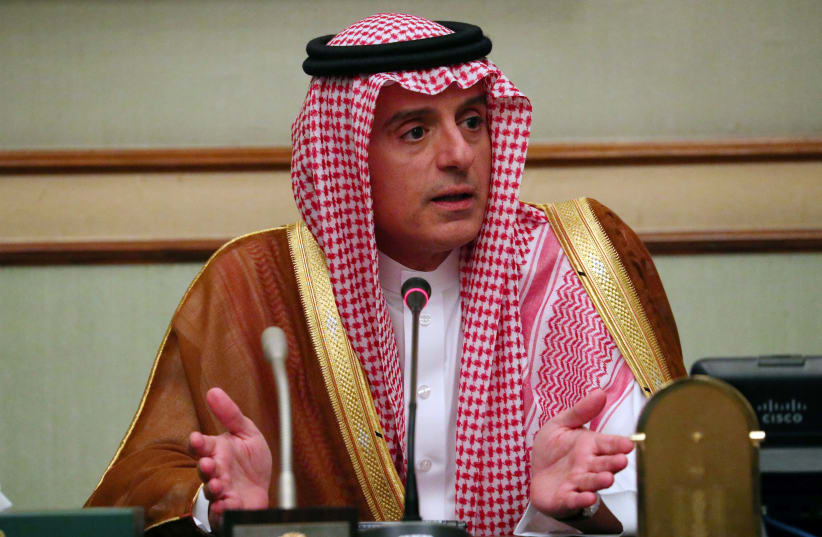In January 2016, after the Iran deal but before the election of Donald Trump, Jubeir warned about the “nefarious activities” of Iran. He was concerned about instability in the region.
“If an American decline were to happen or an American withdrawal were to happen, the concern that everybody has is that it would leave a void, and whenever you have a void, or a vacuum, evil forces flow.”
A former ambassador to the United States from 2007 to 2015, he was a passionate Saudi patriot who was not afraid to excoriate other countries for perceived slights against the Kingdom. After Canada critiqued Saudi human rights issues and the detention of women activists in August, Riyadh responded harshly by withdrawing its ambassador and seeking to sanction Canada. Jubeir said the North American country owed the Kingdom an apology and compared it to Riyadh meddling in Canadian affairs and demanding Quebec be made independent.
This year has been a difficult one for Jubeir. He has had to defend Saudi Arabia’s war in Yemen and also the murder of former insider and journalist Jamal Khashoggi. This has harmed Saudi’s image in the US and led to unprecedented criticism of the Kingdom, the kind that would have been unthinkable years ago among the US political establishment.
Jubeir has rarely appeared in recent months during the unfolding crises, and appears to have been restrained by the Kingdom in responding. This has been difficult for him because he believes so strongly in the US-Saudi relationship. Riyadh had high hopes for improved relations under Trump after a more difficult period under the Obama administration. Initially that appeared to go well with a Trump visit in 2017 that saw a major gathering of Muslim leaders. Trump stuck by Riyadh in the recent crises, but it appears that there are some difficult challenges ahead.
Assaf was minister of finance from 1996 to 2016, an unprecedented long term in the same position. He served under three kings: Faud, Abdullah and now Salman. Born in 1949, he is the opposite of the youth and energy of Crown Prince Mohammed bin Salman who has been personally guiding the Kingdom’s foreign policy for the last several years. Assaf was also briefly detained in 2017 during a crackdown on corruption.
The shakeup will move Jubeir to the post of minister of state for foreign affairs, keeping him around and potentially meaning he will continue to be seen. Assaf’s views don’t appear to be well known. It is assumed as finance minister he is intimately aware of the Kingdom’s relationships and also presumably supports the Crown Prince’s Vision 2030 to diversify the economy and make the kingdom into a technological powerhouse with innovation similar to the UAE.
However, Assaf will have to navigate the complex changes in the region. With the defeat of ISIS and the growing role of Turkey, Iran and Russia as the US withdraws from Syria, the Kingdom does not want to feel isolated. It’s allies in the UAE, Bahrain and Egypt are still involved in a feud with Qatar and they want to oppose Iran’s growing role in places like Iraq. Assaf will now ostensibly be the point man on this agenda.
It also affects Israel because Israel’s main concern is Iran’s role in the region and Israeli ministers have recently traveled to the Gulf, to Oman and the UAE. This means that Saudi foreign policy is important in the region in the coming years, depending on whether the kingdom continues to seek to confront Iran or whether it pivots on some issues. For instance, the UAE re-opened an embassy in Damascus this week, a sign of a thaw with Damascus. Saudi may be following suit. If so, that would be Assaf’s first role in his new post.
